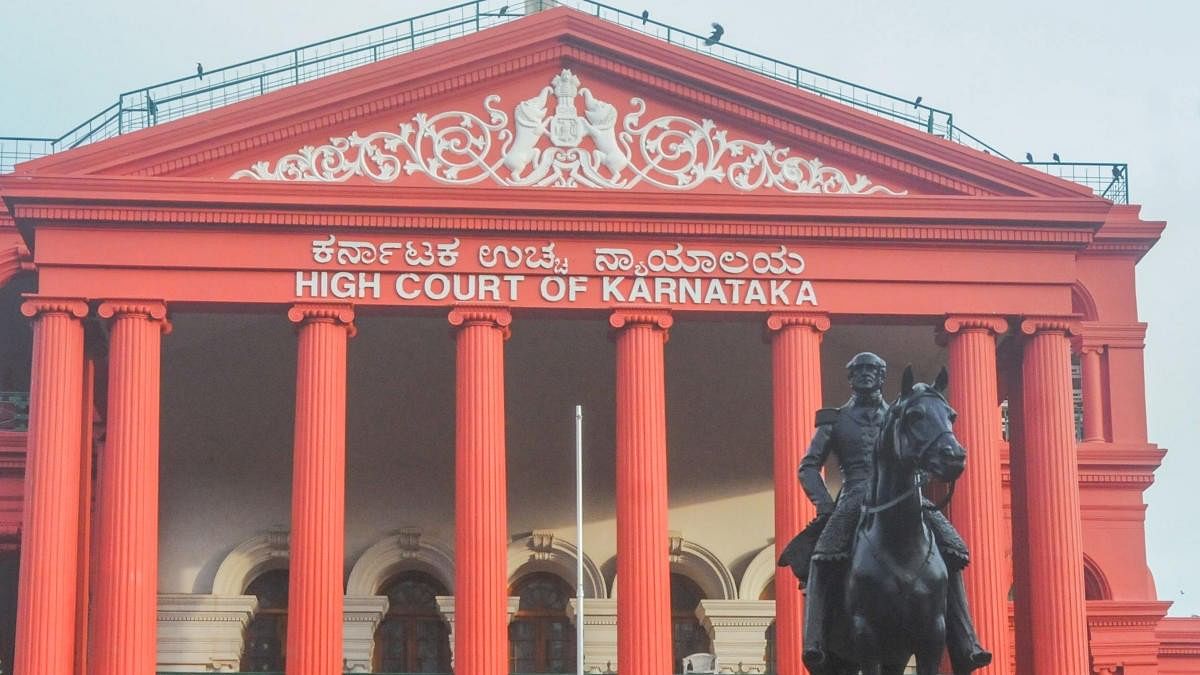
Karnataka HC.
Credit: DH Photo/S K Dinesh
Bengaluru: It would be a folly to treat each breach of promise of marriage as false and prosecute someone for offences punishable under IPC Section 376, the High Court of Karnataka said, while quashing proceedings of rape and cheating.
Justice M Nagaprasanna also observed that the mere break of engagement at a later date cannot amount to cheating.
The petition was filed challenging proceedings under IPC sections 417, 420, 109, 504 and 376 against the first petitioner, who works in a shipping company in the US, and his parents.
The first petitioner was looking for prospective wife and had posted his profile on the matrimonial website, Shetty Matrimonial. Their engagement took place on January 11, 2023.
In August 2023, a complaint was filed with the Kundapur police, alleging sexual assault against the first petitioner on the promise of marriage on the day of the engagement. Police filed the charge sheet against all the petitioners after investigations.
The petitioners contended that the incident narrated in the entire complaint is highly improbable as they never went away and there was no occasion for the first petitioner to take the complainant to a room at 6 pm on the day of the engagement.
It was further submitted that on the day of the engagement, the first complainant had transferred Rs 4 lakh to the complainant’s bank account for an investment. Throughout seven months, the complainant kept demanding money and, therefore, the petitioners decided to call off the marriage.
The court said the Supreme Court had held that there is a vast difference between false promise of marriage and promise of marriage or breach of promise of marriage, and one cannot deny the possibility of the accused making a promise with all seriousness to marry the complainant.
"The observations of the apex court would clearly become applicable to the facts of the case at hand. The first petitioner also did not perform the alleged act on false promise of marriage, it is allegedly performed on the date of the betrothal ceremony. Therefore, it cannot be construed to be a false promise of marriage. It, at best, could be a breach of promise of marriage, which would not become an offence under Section 376 of the IPC," Justice Nagaprasanna said.
The court further said: "It was an agreement between both the families to perform the marriage of the first petitioner with the complainant. Merely because the engagement breaks off, at a later date cannot amount to the offence of cheating against the first petitioner or his family members. Therefore, there is no warrant to permit the trial to continue any further, as permitting it would, on the face of it, become an abuse of the process of law, resulting in patent injustice."